To cap off this essay series, Where We Need To Go, I’m going to serve you more than just insights, observations, and facts about food.
Just as I reflected on its role in my life (in Pt. I) and as I dissected it within the U.S (in Pt. II), food is an important part of where we need to go.
But there’s an entire world beyond that.
Koinonia
A highlight of my life has been relishing in Koinonia.
Koinonia is a Greek word that refers to fellowship with others (especially fellow Christians with each other).
As I mentioned in “America, I Love You… But Our Food + Beverage System is Absolute Crap” there are different forms of fellowship throughout our lives.
It can range from an early morning breakfast with my family to a fellowship meal with church members after Sunday service.
However, as I dig deeper, it strikes me — fellowship goes far beyond what we share on our plates.
At its core, fellowship is “shared participation within a community”. 1
Breaking Bread
As the pastor of my local church in Mexico says, fellowship can be found throughout the Bible.
From Genesis to Revelation.
There are two ways in which fellowship between God and humans may be enjoyed. That is through
(1) isolated, quiet time with God, like “meditation in the quiet of the evening”
(2) worshiping God with others, serving other people, and loving other people (to “put on the Lord Jesus Christ” as Romans 13:14 says)2
On the other hand, there are ways to which fellowship can be destroyed.
That is through shame, excuses, fear, and hiding.
That is – emotionally and physically hiding.
As Genesis 3:8-9 says, “And they heard the voice of the Lord God Walking in the garden in the cool of the day: and the man and his wife hid themselves from the presence of the Lord God amongst the trees of the garden. And the Lord God called unto the man, and said unto him, Where art thou?”
Let’s specifically focus on what Adam and Eve did: “and the man and his wife hid themselves from the presence of the Lord God amongst the trees of the garden.”

The reason they hid wasn’t because of a game of hide-and-seek, rather Adam and Eve disobeyed God’s command and ate the forbidden fruit from “the tree of the knowledge of good and evil.” (Genesis 2:16-17)
After the fall, and disobedience, of Adam and Eve, God dealt with it as he needed to. There were ripples of ramifications to such disobedient actions.
Yet, after that, being All-Powerful and All-Knowing, He still humbly sought to restore relationships with His, now, imperfect people.
What is the resolution? Jesus.
Jesus is the extended hand.
To extend a hand means to (1) initiate and (2) to seek friendship.
That’s why Jesus’ gathered with his disciples to break bread and drink wine, before He delivered on His Father’s ultimate promise of being nailed to a cross and dying for human sins. In gathering with his disciples in this way, he comforted them before he finished His earthly ministry and taught them about the importance of His service.
Jesus washed His disciples’ feet, which showed them the importance of humility and service.
“Have you ever noticed how much of Jesus’ ministry on earth was centered around meals? Among others, there was the wedding at Cana, a dinner with the reviled Zaccheus, the beautiful symbolism of the Last Supper, and cooking fish on the sea shore and sharing it with the disciples after His resurrection. Jesus was even criticized for eating with “tax collectors and sinners” (Matthew 12:16)….. As one scholar put it: ‘Jesus ate his way through the Gospels.’” 3
In the Book of Acts, the apostles continued this line of service towards later followers of Christ and showed a great example of fellowship.
“Every day they continued to meet together in the temple courts. They broke bread in their homes and ate together with glad and sincere hearts…” – Acts 2:46
Acts 2:42-47 shows that believers in Christ were devoted to the apostles’ teaching, to fellowship, to the breaking of bread, and to prayer. They shared and gave to each other when needed.
Once per week may seem like enough for a modern day gathering.
Yet, in the Book of Acts (between 70-90 AD), those same believers were committed to gathering daily in temple courts, homes, and praising God together.
“The early Christian church was a community of believers committed to one another and to growing in faith together.” 4
Those same followers eventually did the same as the apostles did to them: passing it on to others.
Then, others did the same.
Over and over.
And, here we stand today, with the spirit of fellowship continuing to thrive — alive and well in our daily actions.
Denominator
In math, a fraction can’t function without its denominator.
Even more unique, is that a fraction with “0” in its denominator is non-existent.
Similarly, our world, without a God, is non-existent.
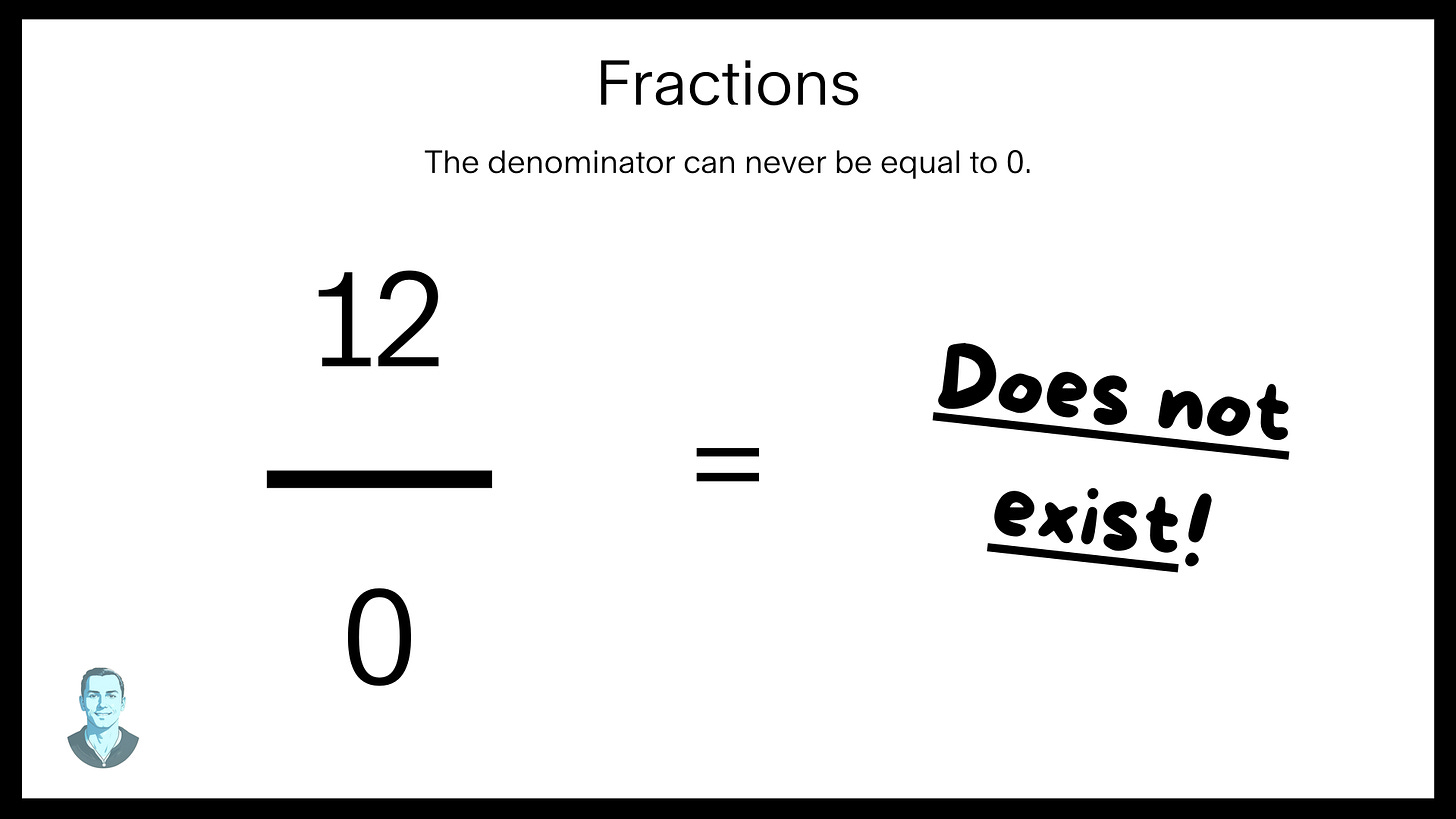
I always thought this:
I envisioned not just fellowship being a denominator to all of our lives, but rather a future where healthy food is the denominator of fellowship itself.
It can be visualized as this.
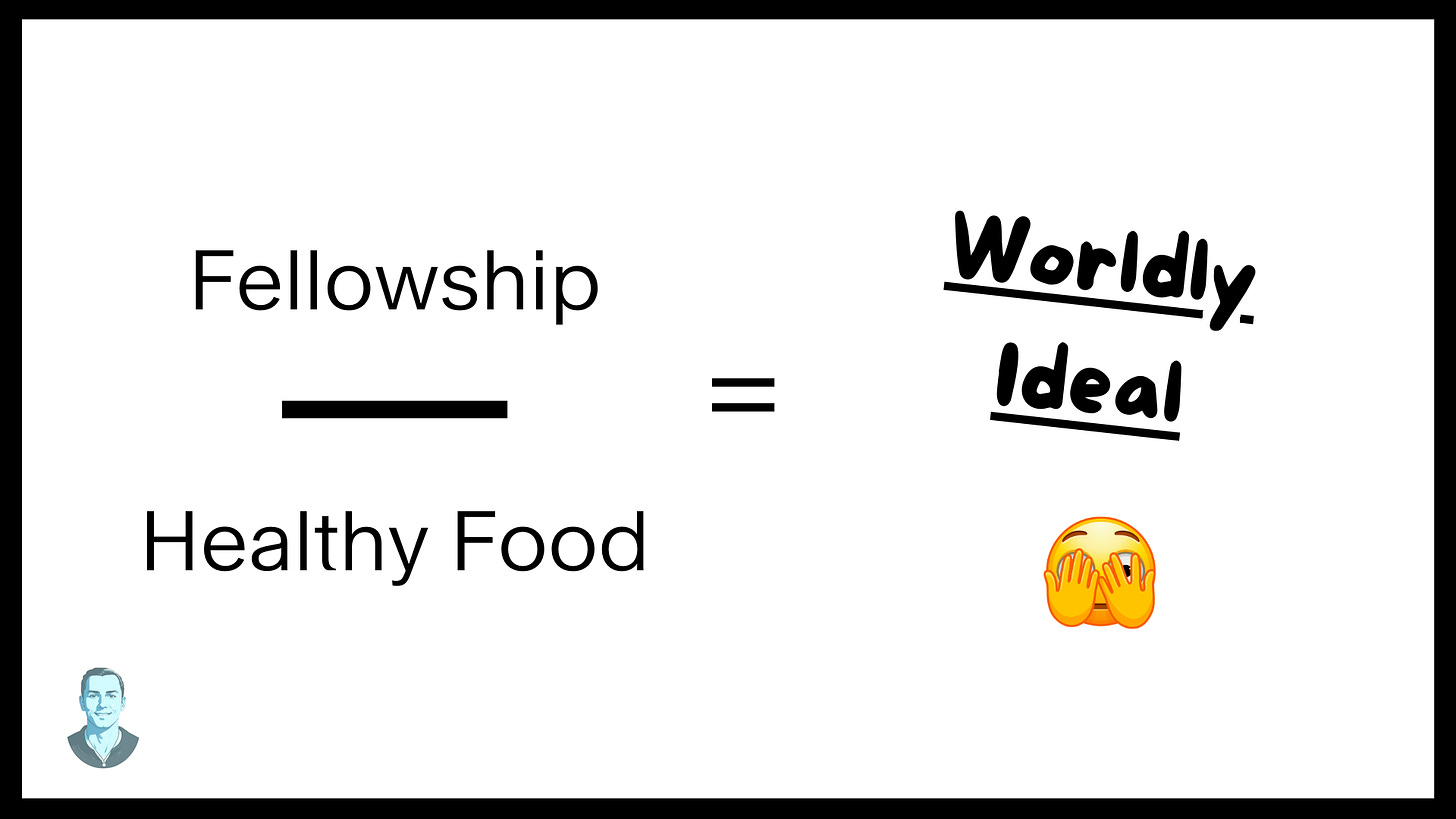
But this is what I realized:
Let’s rework the fraction.
Let’s focus on the soul – and no I’m not talking about soul food either.
The more I dove into writing this essay, I began to realize it’s not “food and fellowship”, but that it’s actually “fellowship with food… all centered around Christ.”
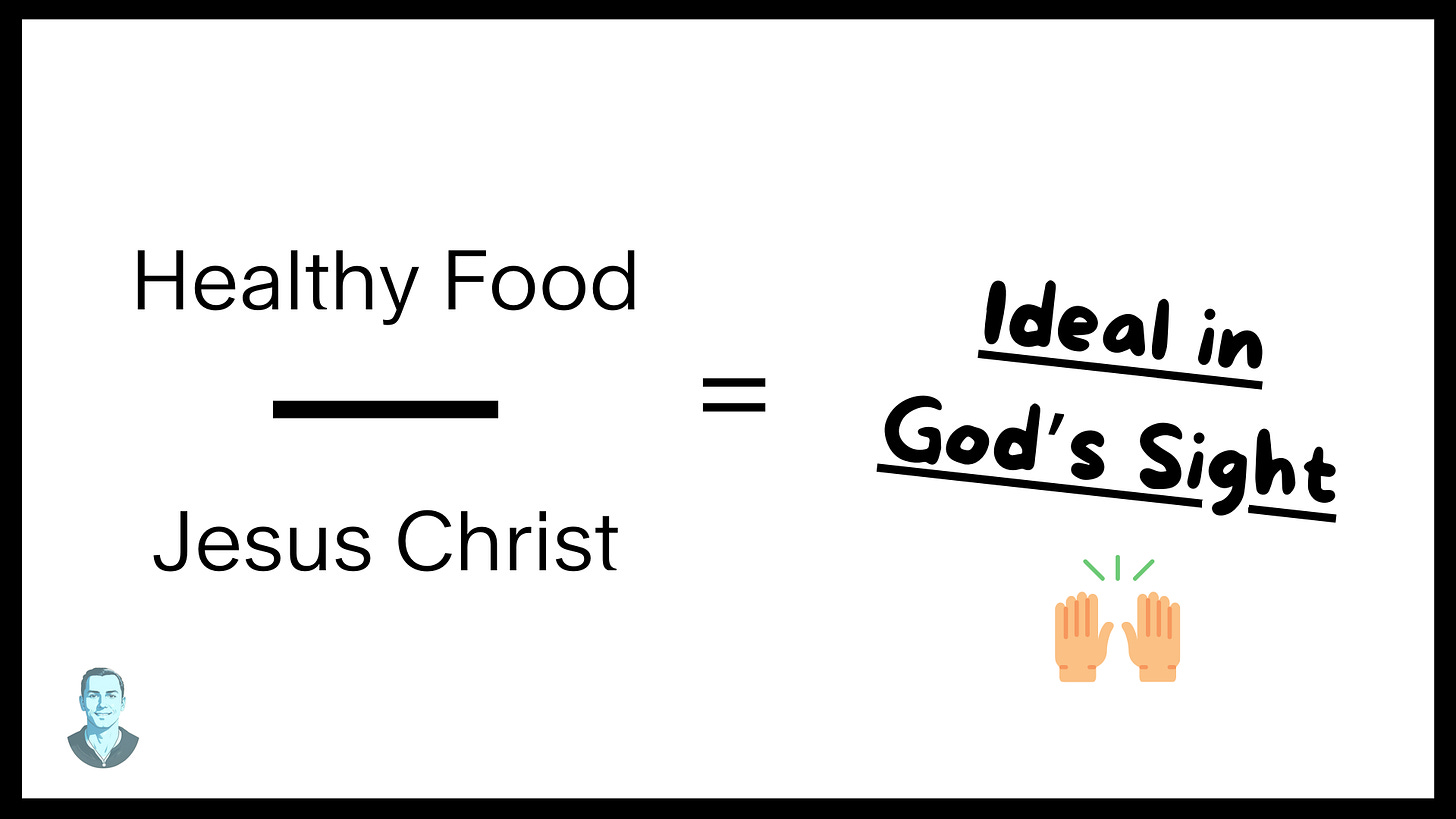
The above is what true fellowship with food looks like.
It goes beyond the ideals of the world, both in many Western’s point of view towards food (healthy food) and in many people’s belief in God (Jesus Christ).
As much as I think healthy food needs to be in the fraction, it simply shouldn’t be in the denominator.
The denominator is Jesus Christ – because without Him, nothing exists.
Christ, not Carne Asada
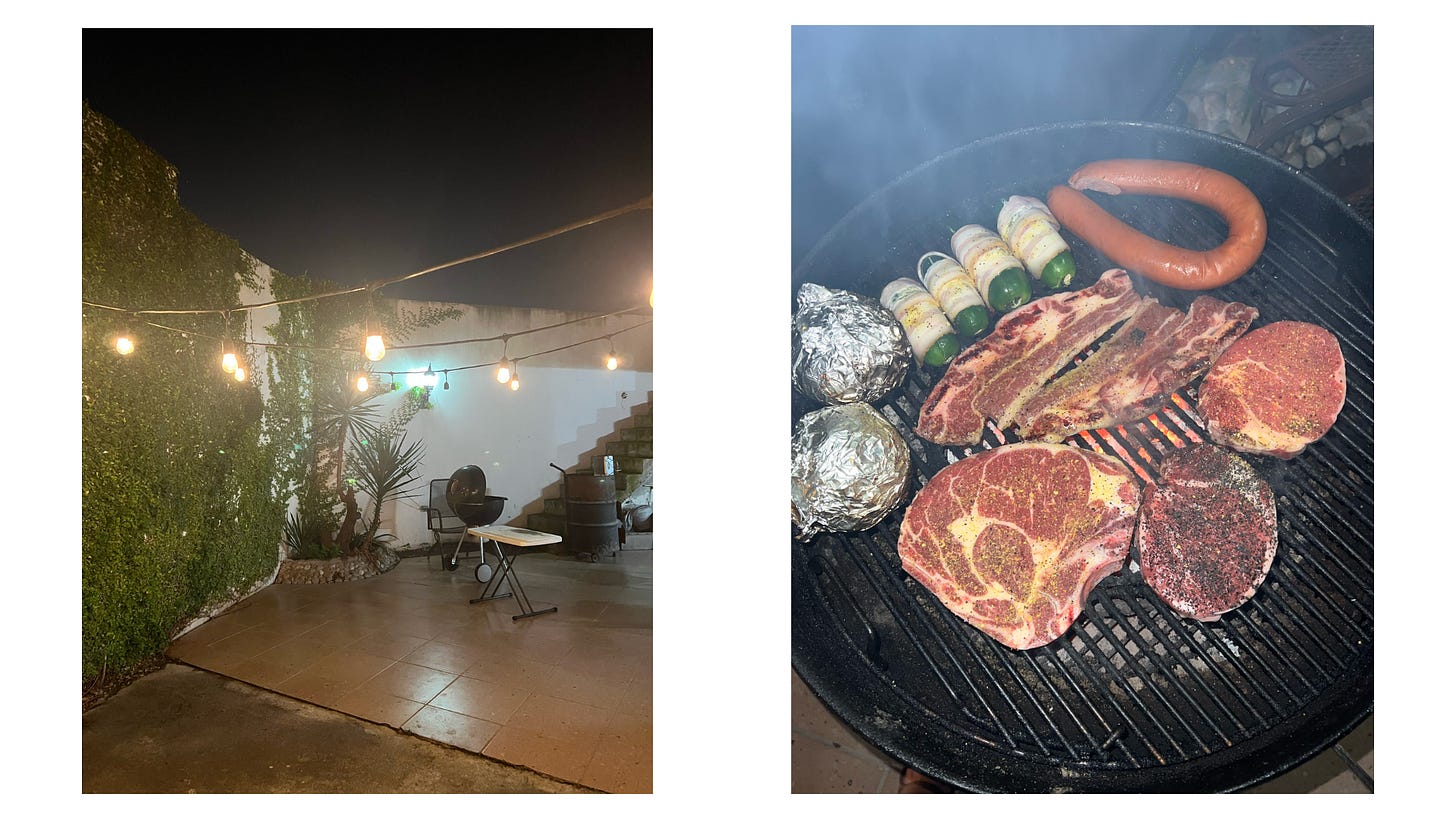
Before I departed from Mexico this December, the same pastor I previously told you about gave me a delight during our recent fellowship together. But it wasn’t just in the form of food, it was in the form of insight.
In telling me a personal story, my pastor beautifully connected me to my point of the denominator example. He told me that people shouldn’t focus on the carne asada of the meal or being invited to this gathering or that.
Rather, the main focus of gathering needs to be Christ – the true bread of life.
We best function and we best honor God when we serve one another, just as Christ served this world when He came to the world in the form of flesh, treated as a sinner (even though He was not one) dying for our sins, buried, resurrecting, and ascending into Heaven.
“When we fear we don’t have enough, our instinct is to hoard our space, time, and stuff in order to survive.… Resisting our instinctive fear and tendency to take rather than give is not easy, but it is possible.” 5
Fellowship. That is a way to make it possible.
“This is the mission of God—to unite creation to himself and human beings to one another. When God’s mission is carried out, more and more of the joy, generosity, and peace of the Father, Son, and Spirit can be seen on Earth.” 6
When it comes to fellowship, we choose every day whether or not we will participate in it.
It’s more than just a food gathering. It’s a daily effort.
The more we choose to serve, the more we will get to where we need to go.
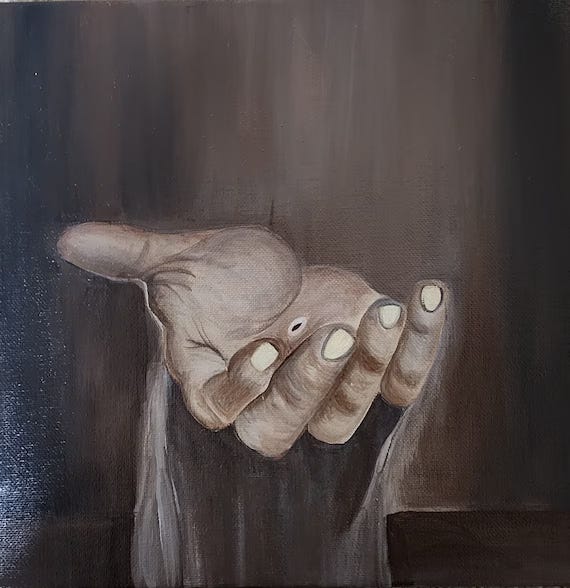
“Jesus told his disciples of a “food that endures to eternal life, which the Son of Man will give to you.” – John 6:27
“The bread of God is he who comes down from heaven and gives life to the world.”– John 6:33
I would love to hear from you:
How do you serve others?
How will you serve others?






